- Home
- Peter Carey
A Long Way From Home Page 29
A Long Way From Home Read online
Page 29
But then he cuffed my head, and I found myself in a place I only vaguely recognised. I grabbed his arm and found it more muscular than I had expected. He dragged me upright from my seat but I tripped him up and he fell, heavy, on his back and we were rolling across the floor and I could see the Punka Wallah’s bare feet and smell the rum and feel a disgusting intimacy as we rolled across my family history beneath his dinner table, and then he tangled in the chair which rocked and tipped and fell and I saw the inlaid pearl shell pop, like confetti, as the paper was forced into my mouth.
‘I’ll take you to the bloody hospital,’ he said.
I gagged. His upper lip pushed into his parrot beak, showing gums as pink as tonsils. ‘You know what we do with twats like you? You’ll be in psychotic breakdown by the time I get you up to Broome. I’ll have you declared insane. You don’t know how easy it is. You’ll have all the boongs you want in there.’
The crumpled paper cut my mouth and blocked my air. I bucked but he had his knees on both my arms and he plucked at my nostril.
‘You better say you’re sorry.’
‘I’m sorry.’
‘Give up.’
I said that I gave up, and he let me go but he had not expected this outcome and he was wild-eyed and frightened.
‘You are the most pathetic little shit I ever saw,’ he said. He was standing very close and it would have showed weakness to move away. ‘You could do five years for assault and battery.’
‘Sign a blank sheet of paper. I’ll write the letter on it.’
‘OK,’ he said and slammed his arm around my neck. I had always been as slippery as a snake and I took possession of his weight, his fat and muscle, and charged with him, his head first, towards the support post in the outer wall, colliding with Kev Little’s pearly chair, which now revealed its hidden weakness and cracked and splintered and delivered unto me one heavy leg, a club with such a slender handle. With this I smote the bastard.
His white arm cracked like a mud crab, the fibula the same, and with that my entire life broke through its shell and revealed the hidden secret of its true and final shape.
The air was very still. The thunder crashed. Gently, the Punka Wallah helped me to my feet, and now there was but one course available to me.
Carter lay groaning while the rain fell like ball bearings on the metal roof. Then I was outside and in the downpour where Doctor Battery passed me a tobacco pouch. In shock, I watched Tom Tailor siphon the petrol directly from the Chev truck into the Peugeot and then I saw young Susie and my brother Crowbar and it was clear they were my friends and would not abandon me now. I fetched my notebooks. There was room for nine more flagons in the back. The ark must be my refuge.
21
I was eighteen years old when I finally saw my father Willem August Bachhuber. This first meeting took place on an airstrip in Broome in the midst of an enormous downpour and was of a duration determined by an approaching cyclone and the need to refuel. After his two years of freedom, mostly spent in a cave in the Oscar Range, my father was a gaunt scarecrow in sodden shorts and T-shirt who was now alone and unprotected in the middle of the storm while his police escort waited for him in the shelter of a fogged up car.
I felt not the least connection to this strange white man with springy wheaten hair cut high above his ears and a habit of looking down when he might be expected to look up.
He had become, in a strange way, my duty and if it had not been for my extraordinary guardian, I would never have known he was my father at all. Madison, however, had grown up imagining his own father was his cousin, and, although he rarely interfered in my mother’s very particular notions of child rearing, on this question he exerted great authority. I must know Willie Bachhuber. This was why I had been sent to meet his books at Bacchus Marsh and why I spent so many hours attempting to understand them. I sold them too, of course, when Madison made me see them as a source of sustenance like those infertile trophic eggs which certain beetles leave solely to feed their offspring.
To arrive at that destabilising meeting in Broome, I had travelled on three tedious flights from Melbourne with my friend Ronnie Bobs and his mother. As my own mum had no wish to ever see my father it was Mrs Bobs who volunteered and Mrs Bobs who paid for all the tickets and Mrs Bobs, alone, who was not bored. On the contrary: she was hysterical.
My father may have been, as so many have suggested, a meddlesome well-meaning amateur anthropologist, but he was also a well-educated, deeply read man, an intellectual whose soul had been seriously contorted as a result of his country’s practice of ethnic cleansing. He was not the sort of character you would think to connect with this weeping woman across the aisle. Yet I will say, in her defence, that she was always warm and affectionate with children. She was someone who made me jam sandwiches and took me and Ronnie to the Royal Melbourne Show. Obviously something very grown-up had occurred between her and my father but I still have no stable notion of what it might have been. As for Mr Bobs, I really have no clue. He was a famous car dealer and radio personality, and was in the tabloids for a while, but I have no recollection of him except, of course, those awful television ads in which he starred himself. It is not original to say that he seemed acrobatic, shiny, more like a wooden puppet than a man.
Ronnie had stayed aboard our aircraft and I was escorted into the deluge by his mother. I remember that the rain was warm, and my shoes were flooded. My father had no umbrella and his hand was wet. He did not kiss me although it had seemed he planned to do so and then changed his mind. I have a strong sense he wished to say things to me but that Mrs Bobs’ bawling somehow got in the way. I was not angry that she denied me my natural meeting, but because she embarrassed me.
Most probably I reported her behaviour to my own mother who presumably put an end to all those spontaneous swims, and barbecues. If I did not see Bacchus Marsh again, it was certainly not my doing. This was a sad loss but not a trauma. More seriously I had to contend with the discovery that my so-called German father had carried the genes that made me Aboriginal. Thank God for Madison. He sacrificed much of his personal life to stand by me.
Impossible as this would prove to be, I did not wish myself to be known or restricted by the colour of my skin. For the longest time I was determined that this would have no effect on me at all and I was readily annoyed with anyone who suggested otherwise. When my mother wished me to study medicine, that is what I did, thoughtfully gaining the scholarship to pay for it. And what human could study medicine in Australia without thinking of Aboriginal people and therefore of cataracts, anaemia, heart disease, diabetes, asthma and pneumonia. I was so often exasperated by friends who concluded blithely that I chose my practice and my patients because of the colour of my skin. Might it not have been my Hippocratic oath or my sense of common humanity? Were these not factors they might reasonably consider?
My father was given ten years in Fremantle, the maximum sentence for Grievous Bodily Harm. I wrote to him regularly as Madison had determined I should and I suppose my letters were as dull and dutiful as a child in a boarding school. I read his letters with no more enthusiasm than I wrote my own and it had to be pointed out to me that my father wished to tell me about that ‘little school’ he had made on Quamby Downs. Why was it so hard for me to show an interest? Was I ashamed of him? Was I perhaps frightened of his loneliness and need? When he expressed the hope that I would visit his old schoolhouse I doubt
I even acknowledged the request.
I passed my Leaving Certificate and Matriculation with first class honours. I was accepted for medicine at Melbourne University. My father continued as a prison teacher and as so many of his students were inevitably Aboriginal he continued his practice of collecting stories, making his non-maps and diagrams. He also, as I later learned, wrote regularly for Walkabout magazine under the name of ‘Eagle’.
Did any anthropologist read those columns at the time? These days they are much better known. Indeed it’s hard to think of a writer so frequent
ly cited and so constantly belittled. We would say now that he reported the secret cults of opposition to white colonisation. The expert view, at that time, was that such cults did not exist. To insist on them was to be a sensationalist or liar who could no more be believed than, say, Daisy Bates whose tales of Aboriginal cannibalism are still attributed to her need to satisfy the lurid appetites of the popular press.
My father was never one for lurid appetites. He was, rather, a man torn apart by two conflicting desires, one to record and the other to keep secret. That is he would reveal or allege an Ark Cult, or a Ned Kelly Cult or a Captain Cook Saga but then, the minute this vast wonder had been glimpsed, his only wish was to kick the whole damn thing out of sight. In my own experience this was maddening.
I was offended that he never thanked me for the time and money it cost me to finally visit Quamby Downs. By then the magical schoolroom had become a whitewashed storage shed with no sign remaining of his labours with the exception of the words ‘Captain Cook’ whose component dyes had separated and risen to the surface, no longer Quinky blue, but a ghostly orange bleed.
Anyone aware of the continuing crisis in Aboriginal health will not be surprised to learn that Doctor Battery and the Punka Wallah were dead and Crowbar was in hospital suffering the extreme consequences of acute diabetes. Of course I understood my father’s sadness, but I was his child and yearned for gratitude as well.
On his release from Fremantle, without me knowing it, he purchased a rifle and ammunition and returned to the same cave in which he had finally been arrested. Here he somehow fed himself.
By the time my friends in Derby led me out to the Oscar Range where Willem Bachhuber and I had our adult meeting, he had made a replica of that other cave, his schoolroom. He had done this only for me, he insisted, and it had been the ‘labour of bloody Hercules’. (Thanks Dad.) Using whitewash, ink and twigs and brushes, he had fastidiously reproduced the Saga of Captain Cook and all the maps or anti-maps and diagrams with which his students had instructed him. Here also, in the country of Jandamarra, he learned many stories and Dreaming tracks and our first proper sit-down meeting took place inside a treasure house, a museum, the inside of a skull decorated with arcs and dots and lines of furry blue.
I took this for what it was, an act of love, a vote of trust.
Yet my father’s trust had limits as I discovered when I came upon a rusted Redex Peugeot overgrown by wattles. The Redex regalia was still legible as was the number 62. Of course I was excited. But Willie’s first inclination was to push this far away. It had nothing to do with his Redex. Only days later did he admit to me that this was the car in which he had fled from Quamby Downs.
Why would he not tell me that?
Well, it was not interesting.
The rusted wreck abutted a large rock outcrop which was distinct not only because of its shape but because, in that vast Devonian limestone country, it was rich in iron. It was a monolith, about the length of a football field, with smooth sheer sides like an axe blade or, as I later thought, an upturned rusty ship.
I am a doctor, not an anthropologist, but I have made enough inquiries to know that distinctive rocks often have a role to play in Dreamtime stories (of metamorphosis, for instance). I mean, what seems to be a rock is sometimes so much more.
With this in mind, I asked my father was that big rock in fact the Punka Wallah’s ark. After all, the journey of the Peugeot had ended here.
Willie was not an overly jolly man, but at this simple question he exploded in laughter which continued far beyond any reasonable explanation. When he had gasped and spat and deary-me’d, he teased me for talking like a whitefellah with my mumbo-jumbo bulldust. He returned to his point continually, for days to come, until I finally concluded that I had been correct.
But what is a rock without a story? Without its Law? Its ritual?
It is my belief that my father had collected these arcane formulae. This was what was stacked on the shelves in his cave, in his so-called ‘mud books’ and his C90 and C120 cassettes.
These last had stretched and deteriorated so badly they appear to be beyond salvation and are therefore no more interesting to the ‘experts’ than the ‘mud books’ whose cores are generally thought to have been written during a period of breakdown.
I have the distinct advantage of having read those ‘mud books’ which seem to me, far from being the product of a breakdown, to be driven by Willie Bachhuber’s desire to preserve and pass down what he had found while, at the same time, honouring his obligation to guard secrets. He had written so explicitly about an ark, I was slow to understand that he was not referring to the secret locus of the Punka Wallah’s cult, but rather his own hoard of notes, diary entries, tapes, accounts of a culture he has now spent a life protecting from malevolent destruction. If my father would not be clear, professor, it is not because he had a breakdown, but because he must record the truth and keep the secret. What may seem to be the signs of madness might be understood by someone familiar with alchemical literature as an encryption whose function is to insist that our mother country is a foreign land whose language we have not yet earned the right to speak.
Acknowledgements
This book could not have been written without the generosity and faith of Frances Coady, that great editor who just happens to be my wife. I am also indebted to many others who first knew me as a stranger. Of all these no name is more important than that of the anthropologist Catherine Wohlan. When Frances and I travelled to the Kimberley it was Catherine who was our companion and teacher. Later, by means of a hundred emails, she became a dear friend. In Broome she introduced me to Pat Lowe and Howard Pedersen (and if that collaboration involved nothing more challenging than opening wine bottles, Pat and Howard’s books have remained my close companions ever since). In Fitzroy Crossing (Mardowarra in its fictional existence) Catherine led me to Carolyn Davey, David (Bullen) Rogers and their daughter Natalie Davey. My tape recorder remains a memorial to those important meetings.
Later Catherine suggested Steve Kinnane would be more than qualified to read the manuscript. Steve is a Marda Marda from Mirrowoong country in the East Kimberley. He is Senior Researcher for the Nulungu Research Institute of the University of Notre Dame in Broome. He is also the author of a prize-winning memoir. It was there I met him, finally, in the elegant and moving pages of Shadow Lines.
Georgine Clarsen is an Associate Professor of History at Wollongong University. She has a PhD in history and the unexpected bonus of a certificate in automotive engineering. She has written widely about women and the Redex Trial and is currently researching the ways that Australian national culture and automobile culture developed together
during the first half of the twentieth century. That is to say, she is and was a perfect source.
It was Georgine who introduced me to Hal Moloney just as he was finishing his history of the Redex Trial. She also knew the Adelaide historian Tom Gara who became a constant advisor during the writing process. When my own illness prevented our great planned adventure on the Nullarbor Tom took me on other journeys in the library, returning with, amongst other treasures, the work of Deborah Bird Rose who alerted me to those rewritings of the white narratives of colonisation, for instance Captain Cook and Ned Kelly. The Captain Cook narrative in this novel is taken directly from Hobbles Danaiyarri’s account which Deborah recorded at Victoria Downs and later wrote about so tellingly. She assures me Hobbles would have been more than happy to see this story find a different readership. The portion I have used is lightly edited.
I should also thank R. Graham Carey, who was not only a warm and generous grandfather, but a pioneer in Australian aviation whose character could not be more different from that of the fictional Dangerous Dan Bobs. I owe apologies to Seaman Dan and Karl Neuenfeldt and to Mrs Petrov for subjecting them to time travel. I am indebted to the poet Paul Kane who is the translator of those twelve ghazals by the Persian poet Hafiz, to Lois Zweck, to Kingsley Palmer, Miles Homes, Paul Carey
, Leon Saunders, Ian Madden, Janice Carey, Trish and Ken Claringbold, Kate Matthews, Sue and Garry Smith, Rod Baker, and finally, L & J Builders for adding the second storey to the Bacchus Marsh High School in a single low-cost sentence.
ABOUT THE AUTHOR
Peter Carey was born in Bacchus Marsh, Victoria, and now lives in New York. He is the author of fifteen novels (including one for children), two volumes of short stories, and two books on travel.
Amongst other prizes, Carey has won the Booker Prize twice (for Oscar and Lucinda and True History of the Kelly Gang), the Commonwealth Writers' Prize twice (for Jack Maggs and True History of the Kelly Gang), and the Miles Franklin Literary Award three times (for Bliss, Oscar and Lucinda and Jack Maggs).
ALSO BY PETER CAREY
The Fat Man in History
War Crimes
Bliss
Illywhacker
Oscar and Lucinda
The Tax Inspector
The Unusual Life of Tristan Smith
Collected Stories
The Big Bazoohley
Jack Maggs
30 Days in Sydney: A Wildly Distorted Account
True History of the Kelly Gang
My Life as a Fake
Wrong About Japan
Theft: A Love Story
His Illegal Self
Parrot and Olivier in America
The Chemistry of Tears
Amnesia
HAMISH HAMILTON
UK | USA | Canada | Ireland | Australia
India | New Zealand | South Africa | China
Penguin Books is part of the Penguin Random House group of companies
whose addresses can be found at global.penguinrandomhouse.com.

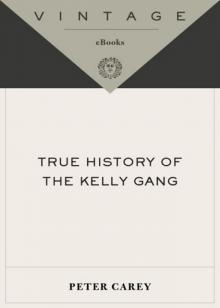 True History of the Kelly Gang
True History of the Kelly Gang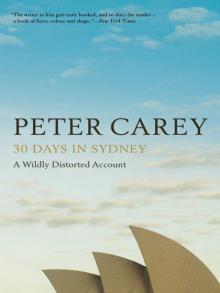 30 Days in Sydney: A Wildly Distorted Account
30 Days in Sydney: A Wildly Distorted Account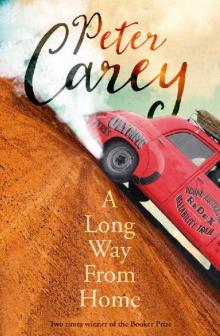 A Long Way From Home
A Long Way From Home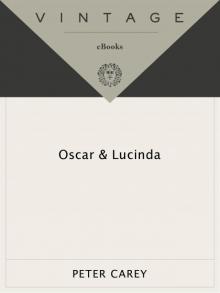 Oscar and Lucinda
Oscar and Lucinda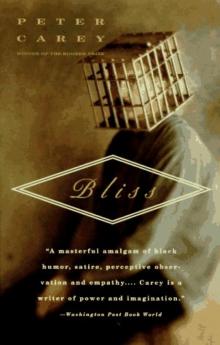 Bliss
Bliss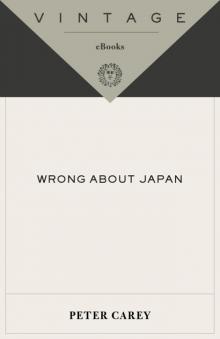 Wrong About Japan
Wrong About Japan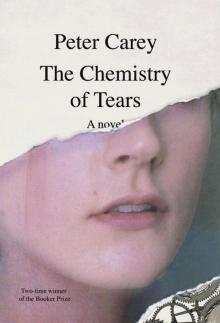 The Chemistry of Tears
The Chemistry of Tears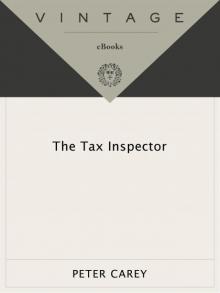 The Tax Inspector
The Tax Inspector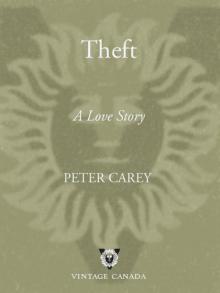 Theft: A Love Story
Theft: A Love Story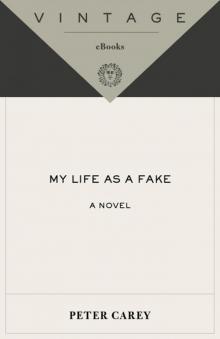 My Life as a Fake
My Life as a Fake Collected Stories
Collected Stories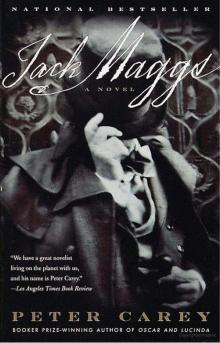 Jack Maggs
Jack Maggs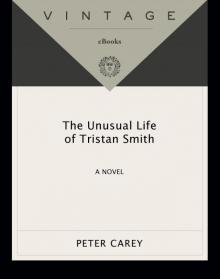 The Unusual Life of Tristan Smith
The Unusual Life of Tristan Smith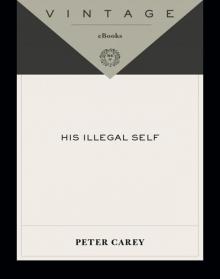 His Illegal Self His Illegal Self His Illegal Self
His Illegal Self His Illegal Self His Illegal Self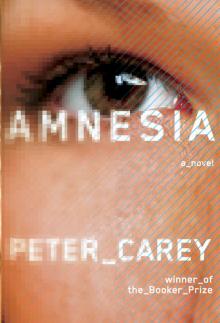 Amnesia: A Novel
Amnesia: A Novel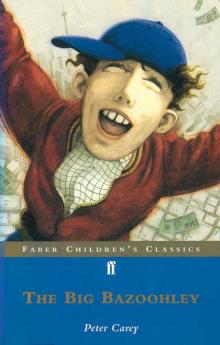 The Big Bazoohley
The Big Bazoohley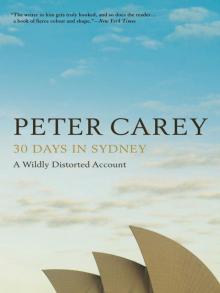 30 Days in Sydney
30 Days in Sydney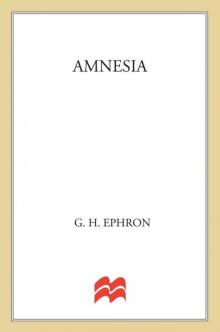 Amnesia
Amnesia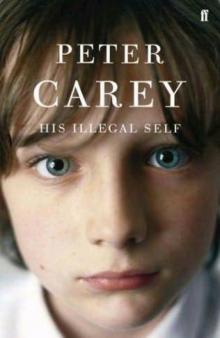 His Illegal Self
His Illegal Self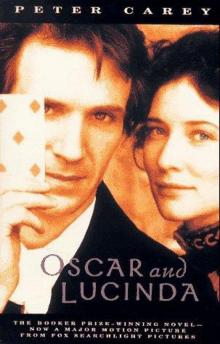 Oscar and Lucinda bw-1988
Oscar and Lucinda bw-1988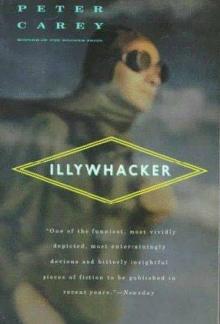 Illywhacker
Illywhacker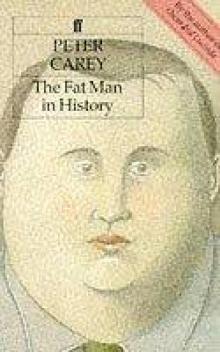 The Fat Man in History aka Exotic Pleasures
The Fat Man in History aka Exotic Pleasures